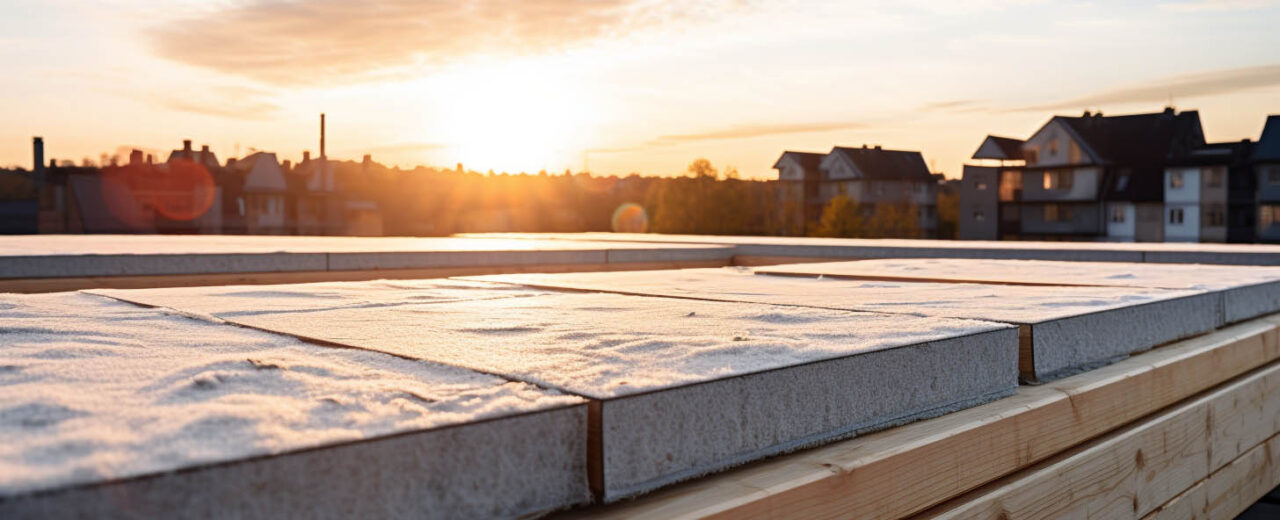The Expanding Horizon of the Flat Roof Insulation Market
The construction industry has witnessed a paradigm shift with the increasing adoption of flat roofs. The flat roof insulation market, which is anticipated to reach an impressive USD 22.9 billion by 2030, underscores the growing demand for efficient insulation solutions. This surge is attributed to the rising popularity of flat roofs in contemporary construction endeavors.
The Imperative for Energy-Efficient Buildings
In today’s era, energy conservation is not just a choice but a necessity. Building codes worldwide are becoming more stringent, emphasizing reduced energy consumption. Property owners are now more informed and understand the significance of insulation in minimizing heating and cooling expenses. This awareness has led to a heightened demand for insulation materials that promise superior thermal resistance, longevity, and resistance to moisture.
However, the journey is not without its challenges. The scarcity of skilled labor for installation and maintenance has been a pressing concern. This shortage often translates to extended project timelines and escalated costs. Moreover, the environmental ramifications of certain insulation materials, which might contain harmful chemicals and lack biodegradability, cannot be overlooked. As the world becomes more environmentally conscious, the inclination towards sustainable insulation materials is bound to grow.
Diverse Flat Roof Insulation Types and Their Attributes
Flat roof insulation is not a one-size-fits-all solution. There are primarily three types:
- Polyisocyanurate (PIR): Known for its commendable thermal resistance and fire-retardant properties, PIR is a preferred choice for commercial edifices.
- Extruded Polystyrene (XPS): Recognized for its robust compressive strength and resistance to water, XPS finds its application in areas prone to moisture or pressure, like parking structures.
- Expanded Polystyrene (EPS): An economical alternative, EPS, while having a slightly lower thermal resistance than its counterparts, is still effective for both commercial and residential structures.
The choice of insulation invariably depends on the specific requirements and financial considerations of the property owner or contractor.
The Competitive Landscape and the Future
The flat roof insulation market is characterized by the dominance of a few key players, including GAF Materials Corporation and Owens Corning. These industry giants have been at the forefront, offering a diverse range of products. Their commitment to sustainability and energy efficiency is evident in their continuous R&D endeavors. However, the entry of new players is set to make the market landscape more competitive.
Furthermore, the global emphasis on sustainable and renewable energy has had a profound impact on the flat roof insulation market. Manufacturers are now more inclined to produce eco-friendly materials that align with energy efficiency standards set by regulatory bodies.
Innovations and Trends in Flat Roof Insulation
The flat roof insulation sector has been abuzz with innovations aimed at environmental conservation and enhanced energy efficiency. The concept of green roofs, which involves the integration of vegetation atop the roof membrane, is gaining traction. Such roofs not only serve as insulators but also mitigate the urban heat island effect. Additionally, the advent of spray foam insulation and rigid foam insulation panels signifies the industry’s commitment to innovation.
The Roofing Center: Pioneers in Roofing Solutions
At The Roofing Center, we understand the nuances of the construction industry. Whether you’re seeking a roofing service in Fort Collins CO or need advice on the best insulation for your property, our team of experts is here to guide you. With years of experience, The Roofing Center’ stands as one of the leading Fort Collins roofing companies, ensuring that your roofing needs are met with precision and expertise.
In Conclusion
The flat roof insulation market is poised for growth, driven by the global shift towards energy-efficient construction practices. As the industry continues to evolve, the emphasis will undoubtedly be on sustainable solutions that cater to the diverse needs of modern construction. With companies like The Roofing Center leading the way, the future of roofing in Fort Collins and beyond looks promising.
>


